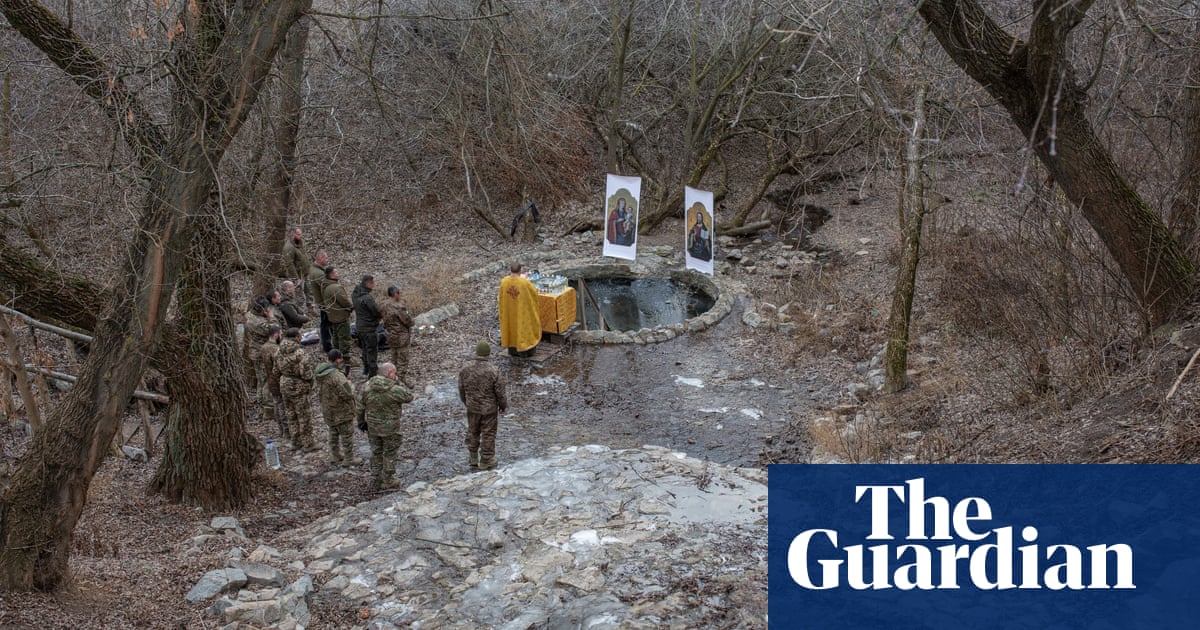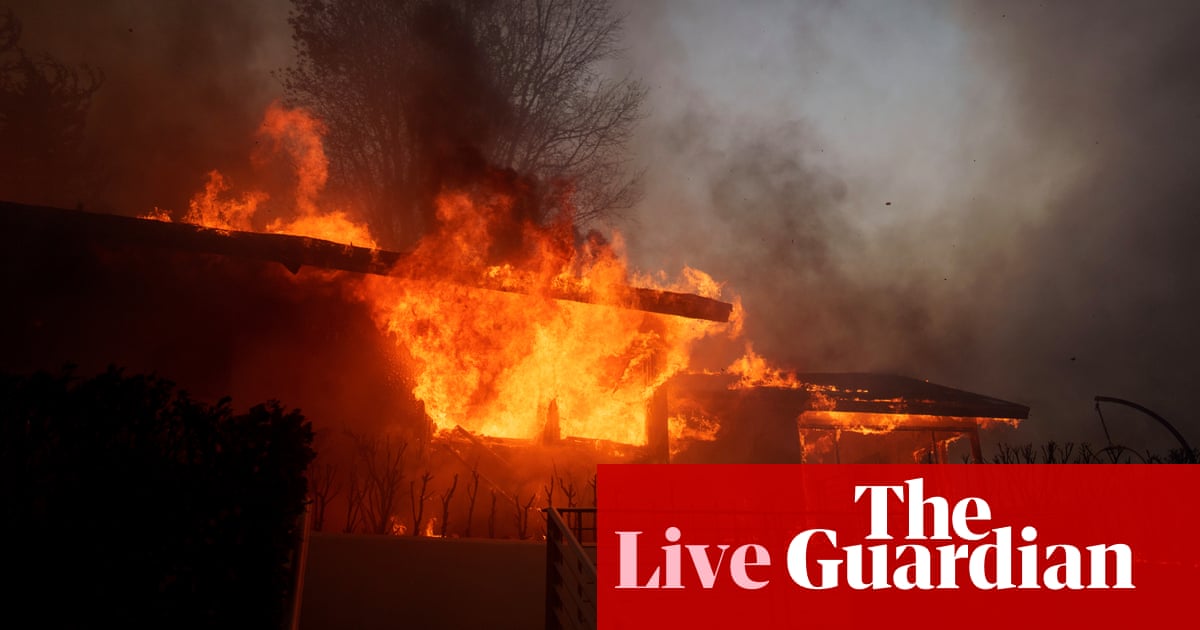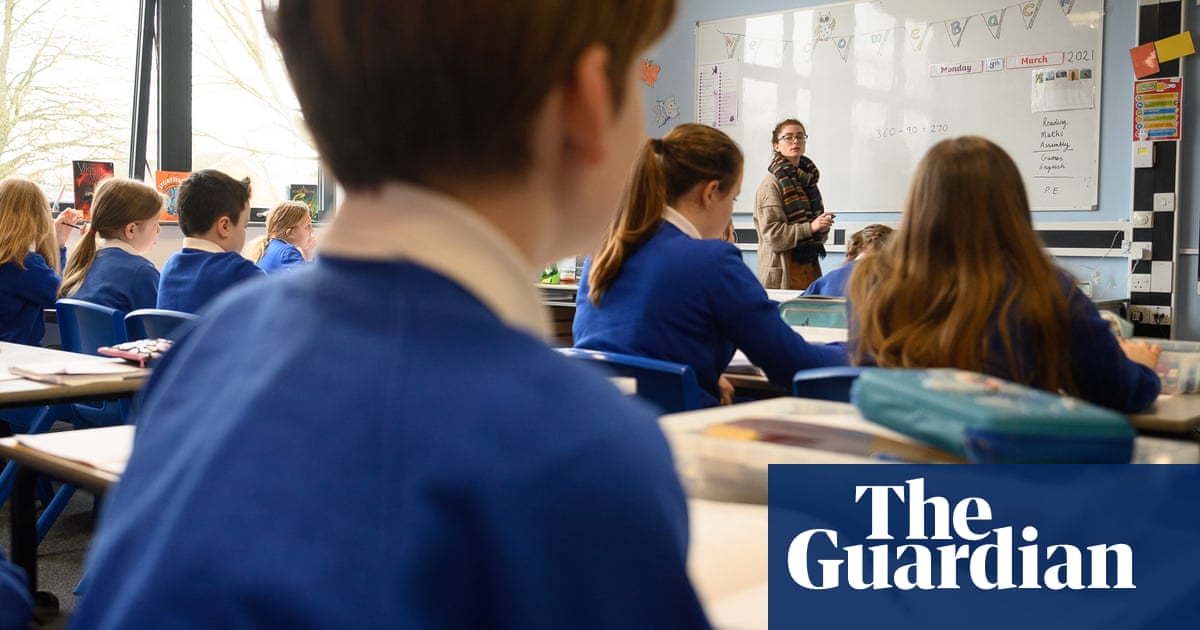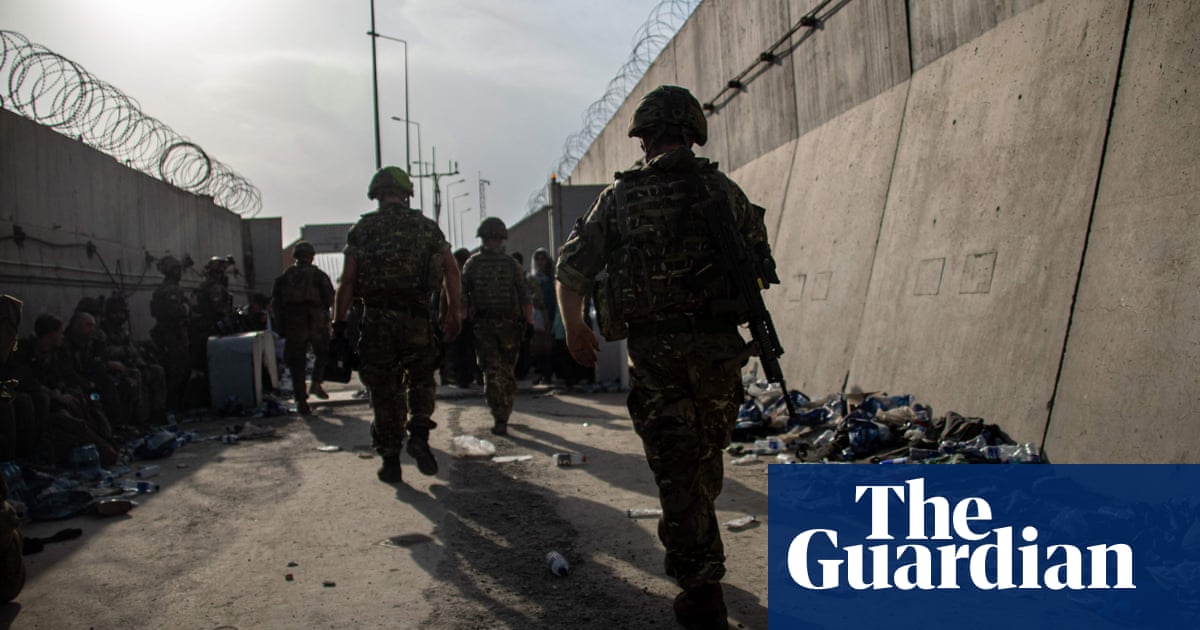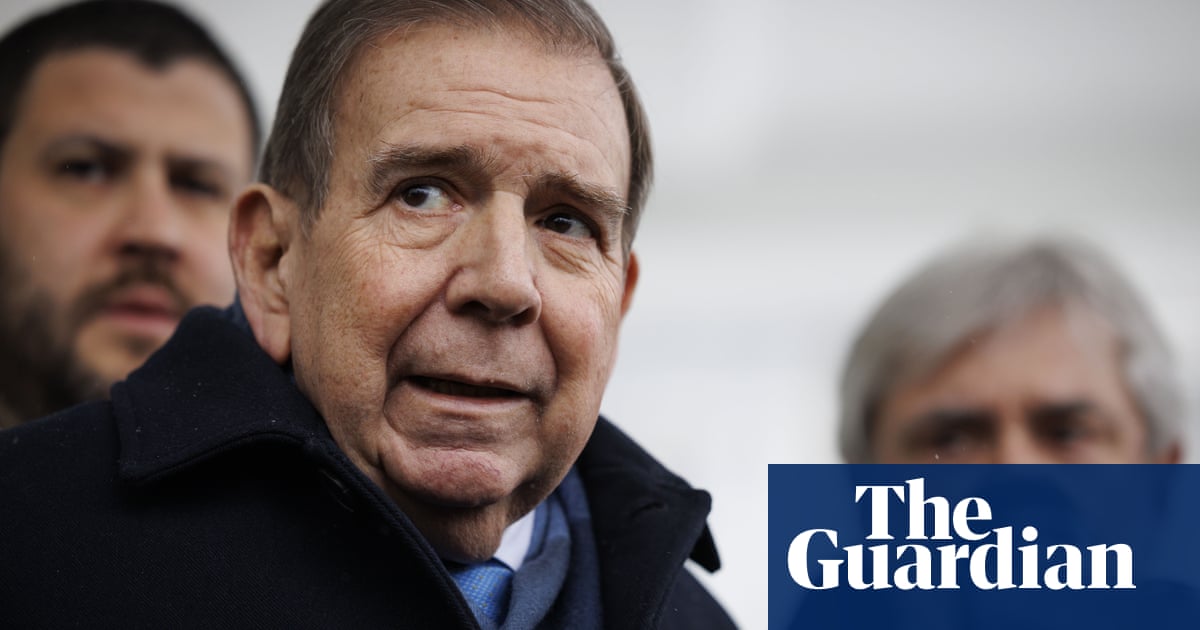Tiffany Owens stood before the city council in Saginaw, Michigan, struggling to contain her anguish.
“I hate this city because this city took away something that was so precious and dear to me. I’ve been living here all my life and I had to bury two of my kids. They out in Forest Lawn cemetery,” she said, her voice shaking with grief.
“We just need y’all to do something. I don’t want another mother to have to stand here where I’m standing. It’s not fair that we all are here but I do not want another parent to have to go through this trauma, go through this pain.”
Owens’ eldest son, Tamaris, was 12 years old when he was killed by a stray bullet from a drive-by shooting. Her 26-year-old daughter, Tamarea, met a similar fate nine years later in 2021. Owens fears for the wellbeing of her remaining son.
The family tragedy does not stop there. Owens’ niece, Tonquinisha McKinley, was killed outside her home during a family celebration before Tamarea’s high school prom in 2013.
Behind Owens, other mothers held photographs of children murdered in one of the most dangerous cities in the US. Saginaw has at times had the highest crime rate of any city in Michigan during recent years, surpassing Detroit, with which it shares many of the same problems of industrial decline, deepening poverty and diminishing population over decades.
More than 180 people have been murdered in the city of Saginaw over the past decade, most of them with guns, alongside hundreds of non-fatal shootings. About 20 people have been murdered so far this year.
The bereaved mothers were pleading for action from Saginaw’s city council at its last meeting before local elections alongside the presidential ballot on Tuesday. For some, the local race is the more important of the two as they look to reverse their city’s decline while the Saginaw council stands accused of dithering and focusing on the wrong priorities. Others see Saginaw’s fate, and the safety of its families, as also inextricably tied to who gets into the White House.
Tamara Tucker also spoke at the council meeting. She was still in high school when her 17-year-old brother was shot dead. Not long afterwards, she joined the support group Parents of Murdered Children to help her mother through a terrible time.
Tucker remained a member when a few years later she, too, came to experience the grief of being a parent losing a child after her daughter was murdered.
“I thought, my God, how can this be? Not again,” she told the Guardian.
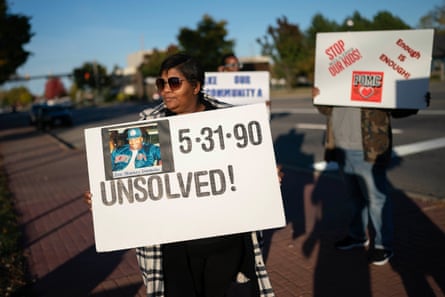
Tucker’s daughter, MoeNeisha Simmons-Ross, was trying to prevent her boyfriend from leaving her Saginaw apartment with a gun. He shot her with it. She was pregnant with their child. The boyfriend was convicted of murder.
That wasn’t the end. A few months later, Tucker’s younger sister was killed in Florida, and then her nephew in Saginaw.
Tucker blames “selfishness” for the violence and the city’s failure to curb it.
“It’s going to take the whole community to turn this around. I keep saying it, and I will say it until I’m blue in the face, it’s going to take the community caring. Apparently, there’s not enough children being murdered for them to actually say we got to do something about this,” she said.
Barbara Clark went to college to get a degree in criminal justice in an effort to understand the causes of the violence in Saginaw and what to do about it after her son, Tommie Ford, was murdered at 17 years old by another teenager jealous of Ford talking to his former girlfriend.
“I wanted to learn as much about the criminal justice system because I need to be able to talk to them in their language so I can know what you’re talking about when they tell me what you can and can’t do,” she said.
Clark said that politicians, the police and people in other parts of Saginaw county were too often willing to blame parenting and gang culture for the killings so as to sidestep the part played by poverty, which runs at about 34% of the city’s population, and lack of resources.
She ties the rise in murders, shootings and other crimes to Saginaw’s economic decline as more than a dozen car factories closed since the 1990s and the population fell sharply to about 45,000 today. Abandoned houses and bulldozed lots dot many streets on the lower-income east side of the city. Schools have been closed and consolidated. With a dwindling tax base, the city government cut back on services including recreational facilities.
“Everything that was there to help those young people, to go to recreation centres, to do anything, has been shut down, decimated. All the schools here are gone. The schools are now placed on the other side of town so you gotta be commuted to it,” she said.
“A lot of people want to say the parents ain’t doing their job. That may be true in some cases but not in all. There are some parents, for instance us, we are doing the best that we can do. But when you have limited funds, there’s only so much you can do. You’re looking at a poverty level of people in the inner city that things are happening to the family. What needs to happen is for the city of Saginaw to bring things back in for these young people to do, give them a chance.”
There was plenty of sympathy for the mothers from city council members. One expressed condolences for the family of the latest victim, 14-year-old Keyvon Bentley, who was killed at the end of October.
Council member Michael Flores, who is not running for re-election, read the names of some of those killed.

“The thing that hurts me the most as a public official is that we lose Saginaw’s future constantly throughout every year that I’ve been here,” he said. “And a lot of the murder victims that I just listed off were 15, 16, 17, 18, 19 ... It’s the saddest thing that I’ve experienced on council.”
But there was little commitment to specific change even from those members up for re-election.
Criticism of the council has focused on how it is spending $52m in grants under Joe Biden’s American Rescue Plan Act (Arpa). The council used half of the funds to fill a budget shortfall.
The council’s plan for the rest of the money includes $10m to support “community centres, childcare and youth development”. But how that will be spent is still unresolved, to the frustration of campaigners.
Flores told the Guardian the city “lacks either the imagination or the ability” to provide opportunities for young people, including initiatives to help those who are otherwise drawn into “a life of crime to be able to produce money for their families”.
He said the council was too focused on allocating money to develop upscale housing, in the hope of drawing higher-income residents to the city, at the expense of affordable homes that would improve the lives of lower-income families. He pointed to a recent case where the council spent $3m to upgrade a building only to sell it to a developer for $1,000 to convert it to relatively upscale condos while rejecting a higher offer that would have brought more affordable housing.
“The council always has the opportunity to be on the side of the people or be on the side of outside developers that want to come in and get tax abatement or tax credits for developing. We never tend to give it to the people that really need the help,” he said.
Carly Hammond is a union organiser running for a seat on the council who is campaigning for more Arpa money to be spent on facilities for young people.
“There is a lot that the city council can do to combat youth violence and create youth opportunities. Back in the 1960s, there used to be much more robust after-school youth education programmes, community centres, funded by the city,” she said.
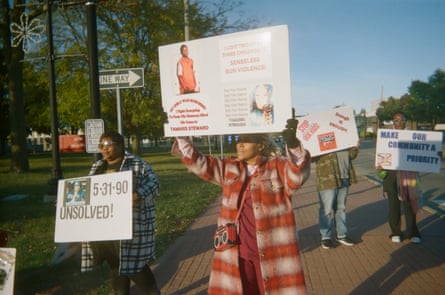
“A lot of these organisms and concepts were strategically dismantled. Rebuilding them takes a whole lot. Youth development means investing in neighbourhoods.”
Hammond accuses the council of hiding behind its own bureaucracy to explain why it is not doing more on affordable housing and support for community organisations. She also accuses the council of leaving some federal money on the table from the community development block grant because it failed to put together the proper documentation.
“The lack of investment overall in the community is felt most by the children. They just feel like there’s no future. If you hear parents and young people talk about this, they’re asking for direct action. They’re not asking for sympathy,” she said.
The council also heard from Matthew Carpus, president of the Saginaw police union. He said officers on the force long ago lost confidence in the city’s police chief and council to address crime.
“Most victims in this city don’t speak out. Either they move out of the city or they suffer in silence. Very few come to these meetings because, like officers, they feel you’re not going to do anything,” he said.
“Not only isn’t it being solved, it’s not getting better, it’s trending in the wrong direction. We need to try something different.”
Flores wants to see more of the Arpa money spent on policing.
“I have done many ride-alongs with police officers. For the amount of area that they have to cover, they’re drastically understaffed,” he said. “There were calls, some of them domestic violence calls and the like, that just weren’t able to be picked up because there were more pressing issues in the moment.”
The city has brought in the state police to patrol parts of Saginaw but Clark said that had resulted in little more than racially profiled stop-and-searches of cars.
“It’s not helping. Instead of them doing what they were brought in to do, which is community service, they’re targeting. If these young men are blessed to have a nice car with nice rims and dress nice, you’re definitely targeted. If your car is dressed, made up a certain type of way, they’re definitely going to pull you over,” she said.
Clark is looking to the new council to change the trajectory. But she said the presidential election would be decisive because while Biden has directed financial support to lower-income communities, she expects Trump to do just the opposite.
“Who’s in the White House does affect us because it, I won’t say it trickles down, it starts down and works it way up. They come for our programmes before they do anybody else’s programme. They will cancel our programme before they cancel anybody else’s programmes,” she said.

.png) 2 months ago
15
2 months ago
15
